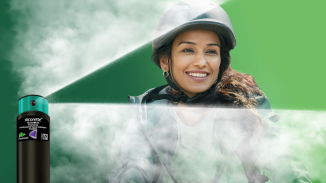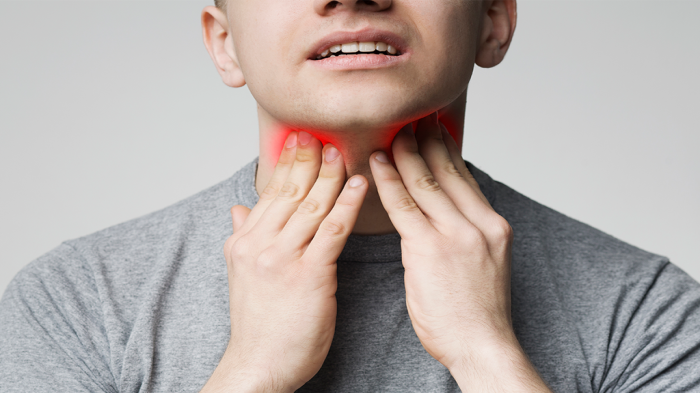In OTC Category Reviews
Follow month by month updates on topics including asthma, mental health and skin conditions and be able to provide informed advice to customers at the counter.Bookmark
Skin diseases affect around 60 per cent of people in the UK at some point in their lives, according to the British Skin Foundation (BSF)
While they can affect people at any age, some are likely to first appear at certain stages of life and should be managed early on, to prevent complications and any impact on mental health.
“Skin conditions can not only cause patients discomfort, but a significant amount of anxiety due to the social stigma associated with such ailments,” says Ruth Giles, brand manager for Care at Thornton & Ross. “Most skin conditions can be treated with over the counter (OTC) medicines and an appropriate skincare regime. However, more serious cases may require referral. Pharmacy teams should familiarise themselves with the symptoms, condition management and when a referral is needed.”
The different stages
One in every five children in the UK is affected by atopic eczema, according to the British Association of Dermatologists. The condition runs in families and is thought to be caused by a combination of genetic and environmental factors. In people with atopic eczema, their skin barrier is more susceptible to irritation, inflammation and infection, especially when in contact with certain triggers such as heat, dust, woollen clothing, pets and irritants (e.g., soaps, detergents and other chemicals). Teething in babies can make the symptoms worse.
"When a baby is born, their skin isn’t mature; it continues to mature during their first year of life," says Anton Alexandroff, a Doctify-reviewed consultant dermatologist in the UK. "The top layers of skin – stratum corneum and epidermis – are 30 per cent and 20 per cent thinner, which explains why the skin barrier doesn’t work well. Skin loses water and dries easily, and it is also permeable to irritant chemicals."
Atopic eczema is most common on the face and in the creases of the neck and elbow and knee joints. Itching is the main symptom and can affect sleep. The affected skin is usually red and dry, may bleed easily and can weep fluid during a flare-up.
In August 2021, a survey commissioned by the Skin Health Alliance found the number of children with eczema had leapt to 25 per cent, up from only 20 per cent pre-pandemic. Seven per cent of these children experienced such sore skin that it led to bleeding hands.
"The increased scrubbing from handwashing with soap and water and the drying effects of alcohol-based sanitisers can all degrade the skin’s naturally produced layer of protective fats and oils, leaving the skin unprotected," says dermatologist Dr Karen Gibbon. "This can be particularly difficult for people who suffer from eczema, especially children, as their skin tends not to produce as many fats and oils as healthy skin. This makes it harder to retain the moisture needed to form the skin barrier that helps protect against dry, irritated, cracked skin."
Complete emollient therapy is an important part of eczema management. This involves applying emollient moisturisers, ideally at least two to three times a day, and washing with a soap substitute. "Emollients are an effective treatment for eczema, which can be applied topically or added to bathwater," says Ruth. "They soothe the skin, reduce irritation, and provide a protective layer to control skin hydration."
Parents may need to try different emollients to find the one they like best on their child’s skin – ideally, the greasier the better. Moisturisers containing an antiseptic may be useful for repeated infections. A doctor may prescribe topical corticosteroids for flare-ups – these are safe and effective when used according to the instructions. Wearing cotton bandages and cotton or silk vests or leggings may reduce scratching; bandages can sometimes be applied as 'wet wraps' to improve the absorption of topical treatments.
Acne is a common teenage problem, although it can start in adulthood, and usually appears on the face, neck, back and chest. It can affect people’s self-confidence, whether it’s mild or severe, so it’s important to treat acne as soon as it appears.
People prone to acne are particularly sensitive to certain hormones. The hormones trigger sebaceous glands in the skin to produce excess oil – this is why acne can worsen around the time of a menstrual period. The oil clumps together with dead skin cells to clog up hair follicles, causing blackheads and whiteheads. This creates an ideal environment for bacteria to multiply, triggering inflammation and red or pus-filled spots.
Most acne treatments take up to four months to work and may cause some initial dryness and irritation. OTC products contain various ingredients, such as benzol peroxide, nicotinamide and tea tree oil and it often takes trial and error to find the right one. "Witch Hazel is an effective product recommendation that staff can reach for when promoting good skincare to customers," says Ruth. "It can be used on the face and neck to remove make-up, excess oils and impurities."
The pharmacy team could recommend some self help measures too, such as using a gentle cleanser and water or an oil-free soap substitute. If OTC treatments aren’t working, a doctor may prescribe topical products (e.g. antibiotics, retinoids or azelaic acid), oral antibiotics, oral contraceptive pills, isotretinoin capsules and other treatments.
Psoriasis affects around one in 50 people. In healthy skin, the skin cells in the outer layer (epidermis) are replaced every three to four weeks. In someone with psoriasis, these cells divide more quickly than normal, being replaced in as little as three to four days.
"Psoriasis causes red, flaky, crusty patches of skin covered with silvery scales," says Dr Nisa Aslam, GP. "In many cases, the patches can be itchy or sore. The severity of psoriasis varies greatly from person to person – for some it’s just a minor irritation, but for others it can greatly affect their quality of life."
Increasingly, research is revealing that psoriasis, particularly moderate to severe, may be associated with, or increases the risk of, other health conditions, such as heart disease, diabetes, high blood pressure, high cholesterol, obesity, anxiety and depression. Psoriasis can affect the nails and the joints as well as the skin and may be associated with inflammatory bowel disease and a small increased risk of skin cancer.
According to a nationwide survey commissioned by Typharm’s Skin Life Sciences Foundation, the number of people suffering with psoriasis in the UK may have increased nearly tenfold. A recent Typharm survey shows that one in five people (17 per cent) now say they suffer with psoriasis. Nearly four in 10 say they first experienced symptoms as a child, while 21 per cent said it first appeared when they were a teenager.
Psoriasis flare ups may be triggered by infections, stress, damage to the skin, alcohol and sometimes intense sunlight. Certain medicines, including beta blockers, lithium and some tablets used to treat malaria, may trigger flare-ups.
According to Dr Aslam, it’s important that people with psoriasis seek advice from their GP. "There are now several topical treatments for skin conditions which can be prescribed by a doctor or healthcare professional," she says.
In psoriasis management, emollients can help to moisturise dry skin, while topical corticosteroids may reduce skin inflammation. Tar products, including bath oils, creams, ointments and shampoos, may reduce the thickness of psoriatic plaques but have a strong smell and can be messy to use. Doctors can prescribe a range of treatments for psoriasis, including vitamin D analogues, calcineurin inhibitors, dithranol and phototherapy.
Contact dermatitis can affect nurses, hairdressers, bartenders, cooks, cleaners and anyone who handles irritating substances or washes their hands regularly. The skin becomes dry and irritated, with small red bumps or blisters that occasionally ooze. This may be triggered by detergents, solvents, hot water or allergens such as hair dye, nail cosmetics, perfumes or nickel. The symptoms can usually be managed with regular emollients, and topical corticosteroids during a flare up.
During the perimenopause, hormonal changes can make the skin drier and more prone to spots and irritation. Many people choose to use skin products that are specifically formulated for menopausal and ageing skin. Fine lines and wrinkles may appear, especially around the eyes. "As skin ages, it loses elasticity, due to the loss of collagen, and becomes slack and wrinkly," says Dr Alexandroff.
Another condition that affects adults, particularly those with fair skin between the age of 40 and 60, is rosacea. This chronic condition affects the face as dilated blood vessels cause persistent redness. The skin often becomes oversensitive and can sting or feel very hot. Triggers include sunlight, alcohol, spicy foods, hot drinks and exercise. Rosacea can also affect the eyes and patients should see a dermatologist or optician if they’re experiencing any eye inflammation or blurred vision. To protect their skin from the sun, people with rosacea should use a sun cream (SPF 30+) on their face every day and reapply it regularly when they’re outdoors. Treatments include topical creams and gels to reduce inflammation, taking a long course of oral antibiotics, beta-blockers to ease blushing, and intense pulsed light treatment.
Poor skin health and chronic skin conditions, such as infected wounds, can limit independence in older people. Recent studies have identified the skin microbiome to be a more accurate predictor of chronological age than the gut microbiome. The Skin Microbiome in Healthy Ageing (SMiHA) network, a new UK-wide virtual institute at the University of Bradford will lead research into the skin microbiome and how it affects skin conditions and ageing.
"We want to understand how changes in the skin microbiome affect skin health and identify links with ageing and its role in conditions like eczema or in wounds that won’t heal," says Professor Julie Thornton, director of the Centre for Skin Sciences at the University of Bradford. "Ultimately, our aim is to understand how to reset or regulate the skin microbiome as a route for healthy ageing."
Older skin can also become increasingly prone to dryness and irritation. "Skin becomes hyper or hypopigmented," says Dr Alexandroff. "It loses water content, and the skin barrier becomes suboptimal. It explains why older skin is drier and more prone to asteatotic eczema and needs extra emollients."
Venous eczema (varicose or stasis eczema) affects the lower legs and is related to poor blood circulation in the leg veins. The severity of this condition varies with some people noticing dry skin and changes in skin colouring, whilst others have areas of inflamed red spots, scaling, weeping and/or crusting. The skin is often very itchy and may be painful. Venous eczema is more common in people who are very overweight, are immobile, have swollen legs or varicose veins, or have previously had clots in the leg or cellulitis. The condition can be managed by reducing pressure in the veins (e.g., by losing weight if overweight, exercising, wearing compression stockings and elevating the legs when possible during the day). Emollients are the main treatment, along with topical corticosteroids to treat itchy flare ups.
The incidence of basal cell carcinomas also increases with age. These account for around 80 per cent of all skin cancers in the UK and are sometimes called rodent ulcers. Although they can occur anywhere on the body, basal cell carcinomas tend to appear on areas that are exposed to the sun, such as the face, head, neck and ears. They usually show up as a scab that bleeds and doesn’t heal completely or a new lump on the skin. Treatment often involves surgery.
Sponsored
 Sponsored education
Sponsored education
Helping vapers find a path to quit
Help vapers find a path to a nicotine-free life when they are ready to quit with the first NRT product licensed for this indication
 Sponsored education
Sponsored education
7 steps to managing sore throat
Get to grips with what customers want from their sore throat treatment and upgrade your consultations with this 7-step guide


Record my learning outcomes